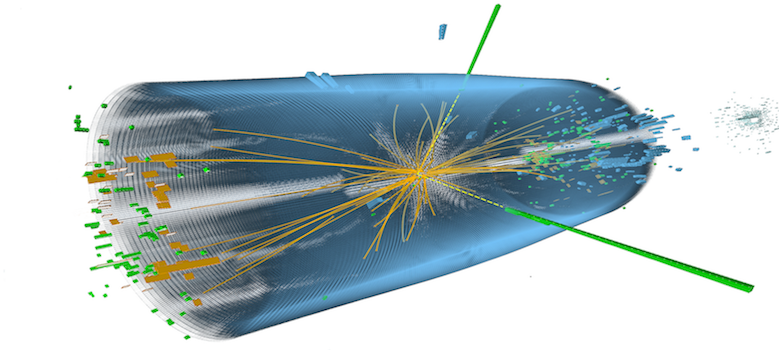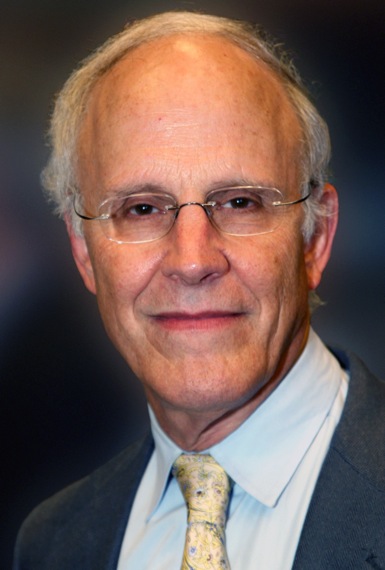


Current questions in elementary particle physics and the state of string theory are the subjects of this High Energy Frontier Theory Initiative (HEFTI) lecture by David Gross.
Gross won the 2004 Nobel Prize in physics and holds the Frederick W. Gluck Chair in Theoretical Physics at the Kavli Institute for Theoretical Physics at the University of California, Santa Barbara, where he also is director of UCSB's Institute of Theoretical Physics.
"The Coming Revolutions in Fundamental Physics" will review "the present state of knowledge in elementary particle physics and the questions that we are currently addressing," said Gross. "I discuss the experimental revolutions that might occur at the Large Hadron Collider, soon to be finished at CERN."Not only will Gross approach the possibilities of big science at the LHC, he also will review the state of string theory. "The necessity to go beyond the standard model of particle physics and to understand quantum gravity has led to this ambitious attempt to unify all the forces of nature and all forms of matter as different vibrations of a string-like object," he said.
"But string theory is still in a pre-revolutionary stage. Although remarkable progress has been achieved in the last decade in understanding the perturbative and non-perturbative structure of string theory, we still lack a fundamental understanding of the theory. Many string theorists suspect that a profound conceptual change in our concept of space and time will be required for the final formulation of string theory."Gross received his bachelor's and master's degrees from the Hebrew University of Jerusalem, Israel, in 1962. He received his doctorate in physics from the University of California, Berkeley in 1966 then spent three years as Junior Fellow at Harvard University. In 1973, he was promoted to professor at Princeton University and named Eugene Higgins Professor of Physics in 1986. He assumed the title of director and holder of the Frederick W. Gluck Chair in Theoretical Physics at the Kavli Institute for Theoretical Physics of the University of California, Santa Barbara in 1997. Gross also was awarded an honorary doctorates by the University of Montpellier, France, the Hebrew University, Jerusalem, Sao Paulo University, Brazil, Ohio State University, the University of the Philippines, Manila, De La Salle University, Manila, the University of Cambridge, England, and the Hong Kong University of Science and Technology.
In 1973, working with Frank Wilczek at Princeton University, Gross discovered asymptotic freedom, which holds that the closer quarks are to each other, the less the strong interaction (or color charge) between them; when quarks are in extreme proximity, the nuclear force between them is so weak that they behave almost as free particles. In 2004, Gross was awarded the Nobel Prize in Physics for his discovery of asymptotic freedom, along with Frank Wilczek and David Politzer.
Time and Place
The lecture was held on Tuesday April 7, 2009 at 8:00 pm in the AGR room of the Alumni Center.
This event was sponsored by the High Energy Frontier Theory Initiative and the UC Davis Physics Department.
Mailing List
If you would like to receive an email announcement of future HEFTI Public Lectures, please fill in the form below.
Registration for the UC Davis HEFTI Public Lecture mailing list
Enter your email address below.